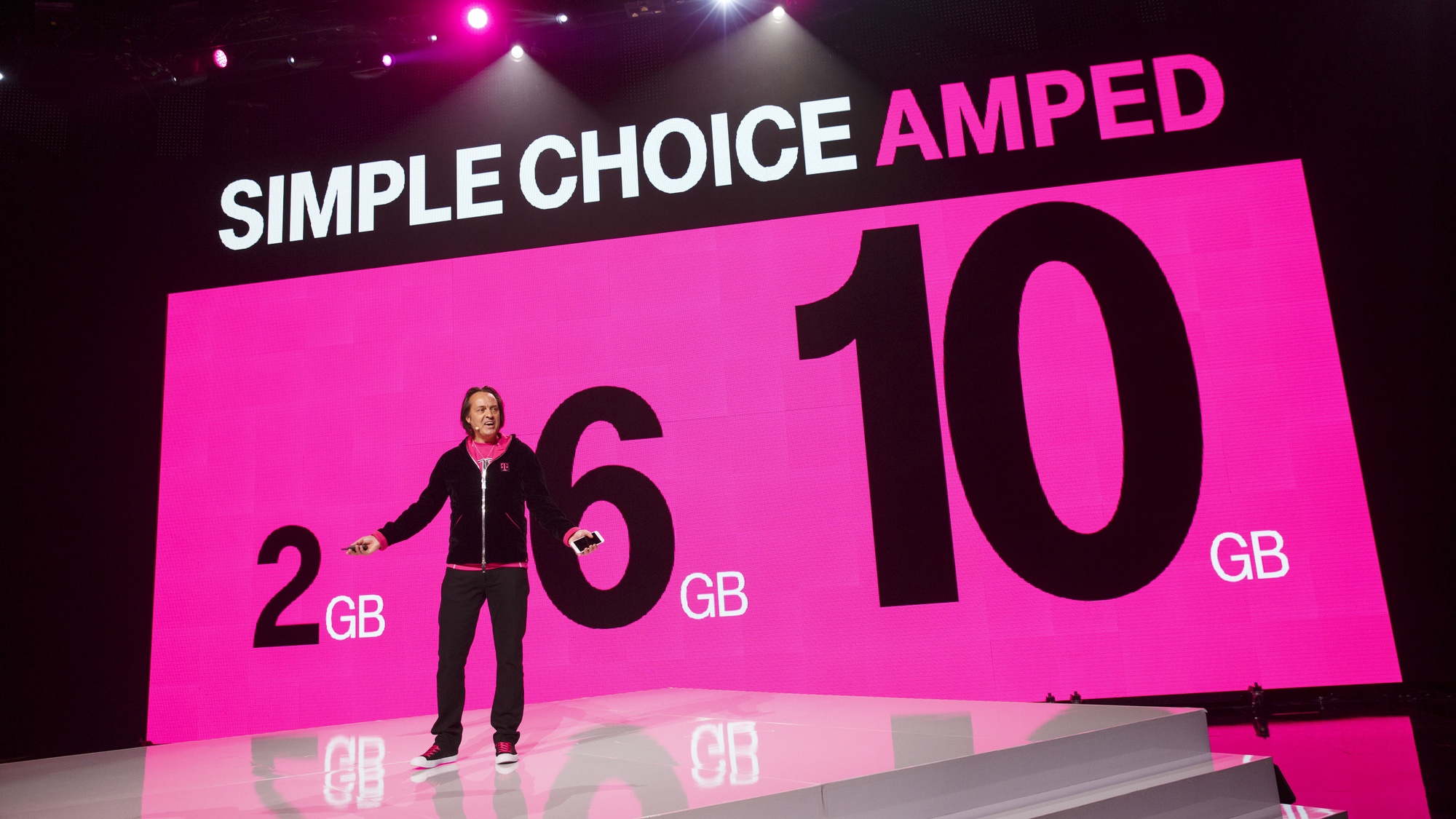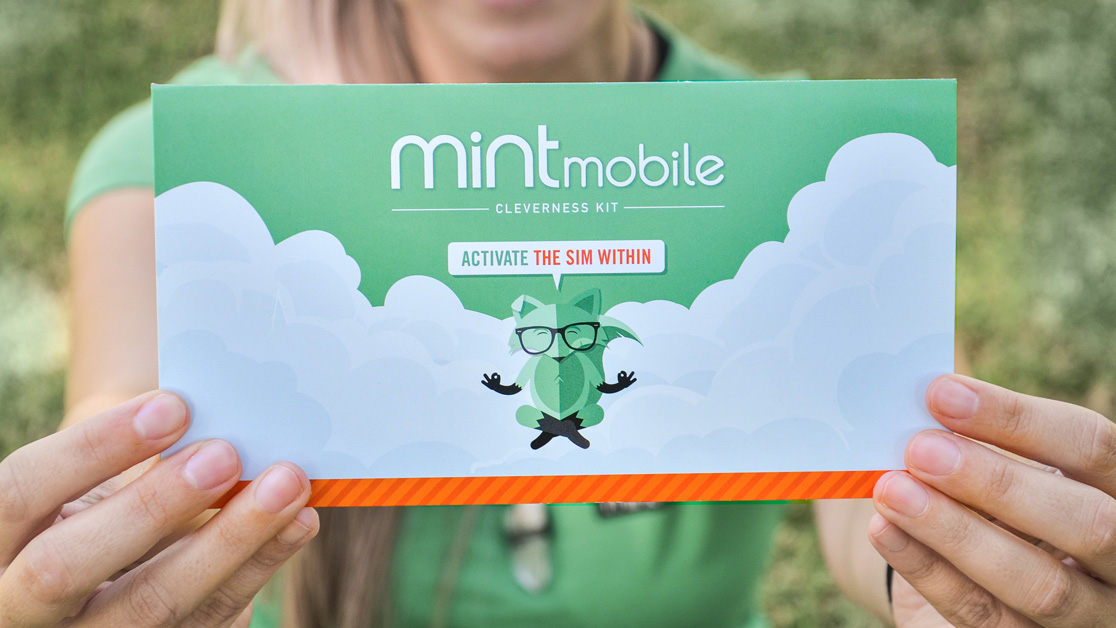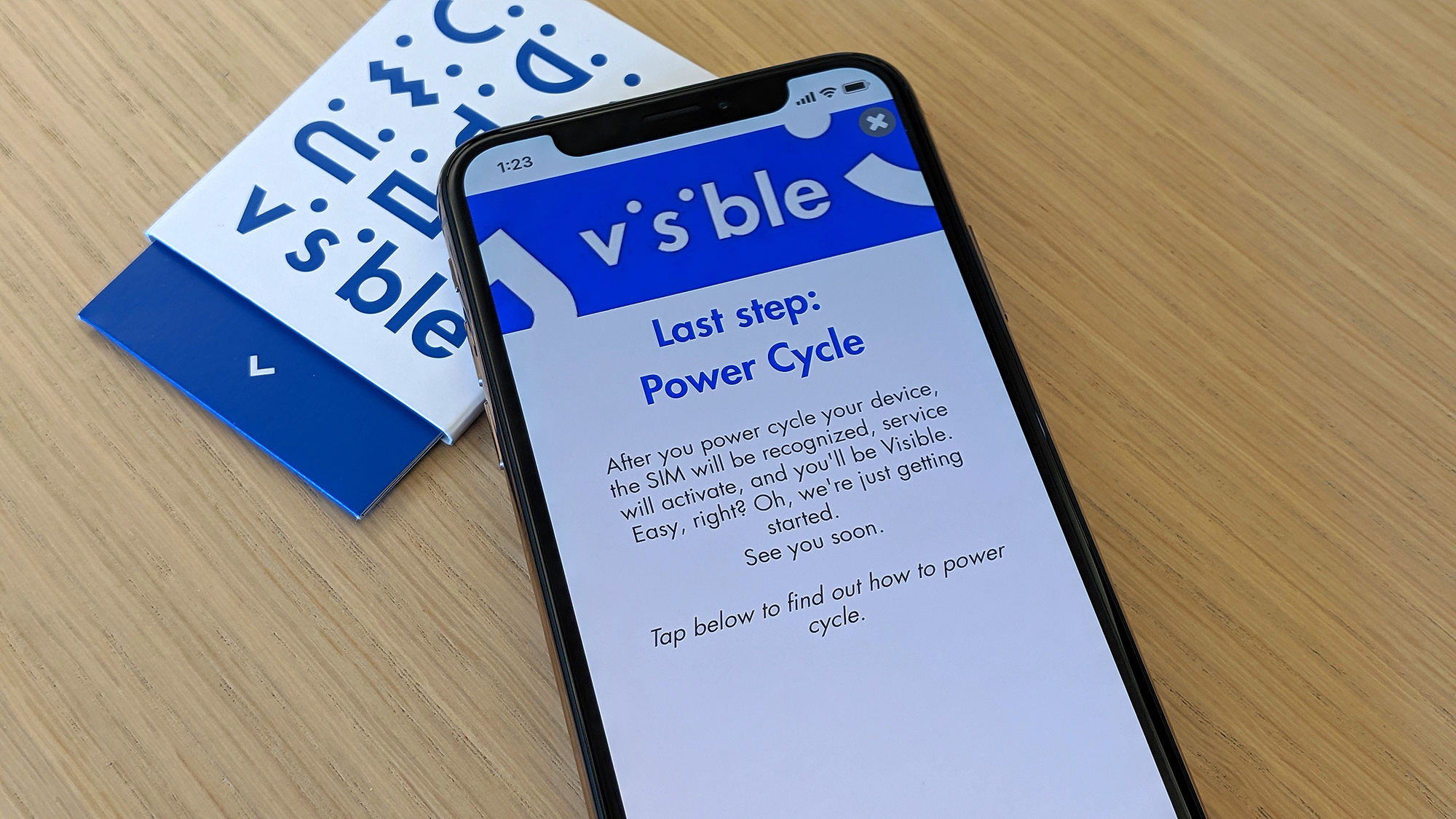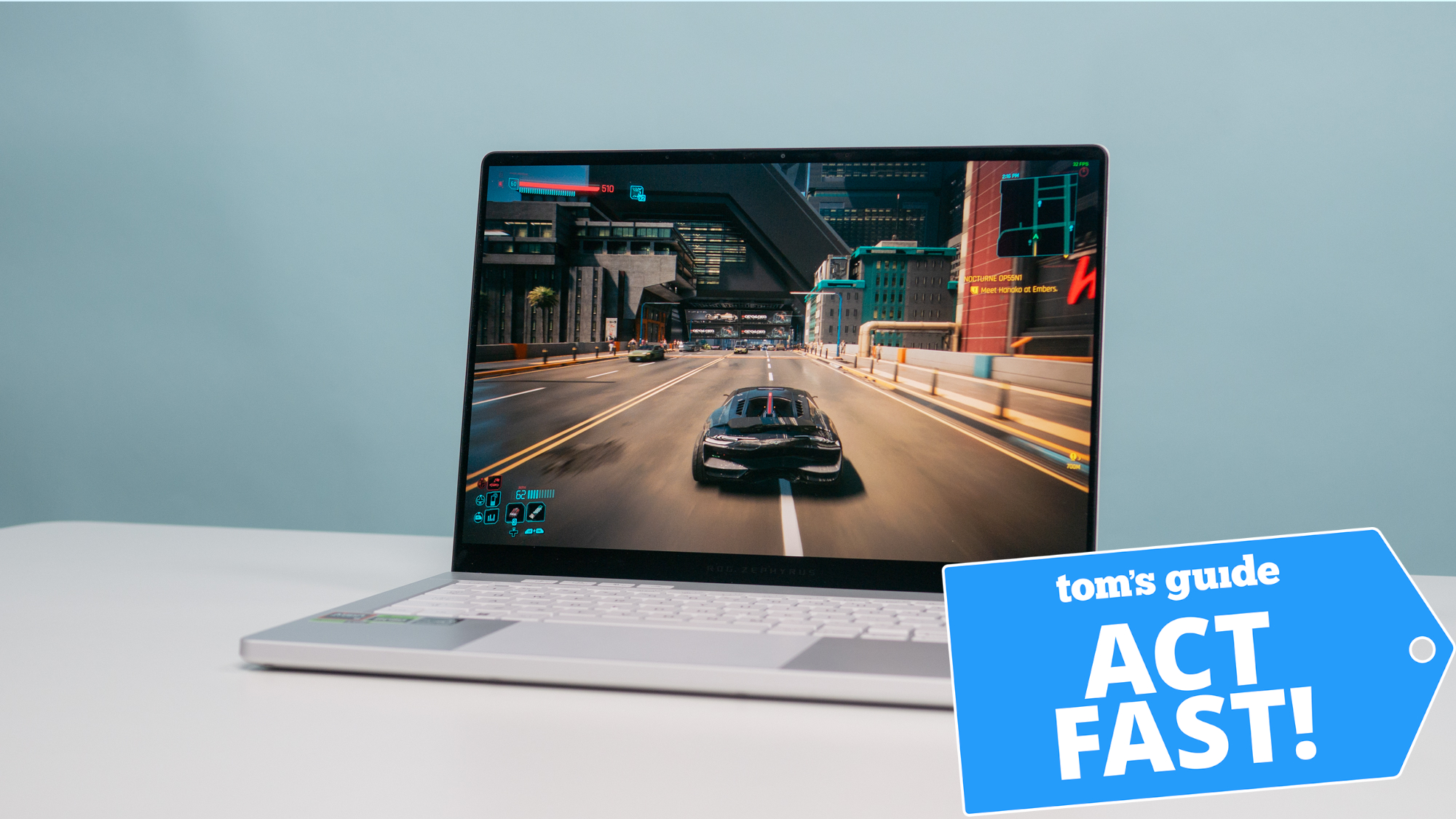How to save money on your cell phone bill
Follow these tips to lower your monthly bill

Your wallet may be feeling the pinch of higher prices on everything these days, leaving you to wonder if there's any way you can save some money in your monthly budget. You cell phone bill might be a good place to start looking.
We're not talking about getting rid of your smartphone bill completely. For many of us, our mobile phone is our primary — if not only — way to make calls. Throw in text and data, and having a mobile phone close at hand is pretty much an essential expense.
No, what we had in mind was going over what you pay each month and finding out if there are ways to save a few bucks here and there. Maybe it's as simple as changing the amount of data you pay for or finding some hidden cost that's causing you to pay more than you need to. In more extreme cases, you may need to take your business to another wireless service to find the best cell phone plan for your needs.
Whatever the solution winds up being, there are plenty of ways to save money on your smartphone bill. Here are seven tips that could reduce how much you pay each month for your wireless service.
Make sure you're paying for the right amount of data
Since the majority of cell phone plan bills these days include unlimited talk and text, data plays one of the biggest roles in determining what you pay to your wireless provider every month. And chances are, you're paying for more data than you probably need.
Major wireless carriers tend to push you to unlimited data plans, which certainly mean stress-free streaming and binging but also can result in costly monthly bills. If you can get away without requiring an unlimited data plan, why pay for one?

To find out what amount of data you need, dive into your wireless account to find out how much you've been using on a monthly basis. It's usually a matter of signing into your wireless account and heading to the billing section. Some wireless carriers even let you check from your device, whether in their mobile app or by calling a specific number. (Dial *3282# on AT&T, #932# on T-Mobile and #3282 on Verizon.)
Sign up to get the BEST of Tom's Guide direct to your inbox.
Get instant access to breaking news, the hottest reviews, great deals and helpful tips.
If you're using more than 10GB of data, then you should be on an unlimited plan. If your data usage never goes over 5GB, though, you should start shopping for tiered data plans that are less expensive than what you're paying for now.
Sign up for autopay
Paying your bill electronically is not only convenient and saves a tree or two by going paperless, it can also knock a few bucks off your bill. For example, T-Mobile's Magenta unlimited plan will cost you $75 a month, but sign up for autopay and you can lower that cost by $5 to $70. AT&T and Verizon offer discounts of their own with autopay on their unlimited plans.
In most cases, you can expect around $5 in savings from autopay, which can add up over the course of a year. In some instances, you can save even more. (AT&T's unlimited prepaid plan lowers its costs by $15 to $50/month after autopay enrollment, for example.)
Chances are, you may have already signed up for autopay, but if you haven't, check with your carrier to see if that can lower your monthly bill any. And if you're shopping for a new plan, make sure to check out the autopay options and discounts at your new wireless provider.
Look beyond the big carriers
We've only mentioned the Big Three carriers so far — AT&T, T-Mobile and Verizon — but there's a whole world of options for cell phone service if you're willing to go off the beaten path.
MVNOs — that's short for mobile virtual network operators — use the networks of larger carriers to offer service, usually at a lower rate. The trade-off for the lower bill is fewer perks than you might get with a more expensive plan from one of the bigger wireless providers. It's also possible your data speeds could be slowed if the network is congested, as major carriers prioritize their own customers first. Still, those are reasonable sacrifices if it means cutting your bill in half.

Some MVNOs rank among the best phone carriers we've tested. These lower-cost options include Mint Mobile, Visible, Google Fi, Boost Mobile, Xfinity Mobile, Consumer Cellular and Metro By T-Mobile. Turn to those carriers, and you'll usually find cheaper plans than what the bigger wireless carriers charge — even for unlimited data.
Pick plans where taxes and fees are included
Ever look at your monthly cell phone bill and think, "Well, that's more than I thought I was paying when I signed up for this plan?" Those are taxes and fees you're being charged on top of your monthly rate. They can fluctuate from month to month and — even worse — increase, even if your base rate is locked in.
Some phone carriers have taken to baking the taxes and fees into your monthly bill, so that you're always paying the same rate.
Some phone carriers have taken to baking the taxes and fees into your monthly bill, so that you're always paying the same rate. At the very least, it locks in your monthly phone expenses, so that you can expect to pay the same amount each month. And it could save you money, if those local taxes creep upward.
T-Mobile has been a pioneer in this regard, including taxes and fees in the cost of its Magenta and Magenta Max unlimited plans. (Alas, the lower cost T-Mobile Essentials and T-Mobile Connect plans don't include taxes and fees in their pricing.) The T-Mobile-owned MVNO Metro by T-Mobile also covers taxes and fees, as do Visible, Boost and Cricket Wireless.
Pay upfront for a lower monthly cost
Buying in bulk works when you're shopping for toilet paper and other household goods. Why not apply the same principle to cell phone service. Some wireless carriers let you prepay for services months in advance to get a lower overall monthly fee.

Mint Mobile is the best example of this practice. The discount carriers offers some of the lowest fees we've seen on its monthly plans — from $15 per month for 4GB all the way up to unlimited data for $30 per month. But to keep these lower rates after an initial three month trial, you have to pay for 12 months of service. That's a big outlay upfront, but the lower monthly cost over time is worth it.
Even bigger carriers are beginning to offer this approach. AT&T's prepaid service includes an 8GB monthly option that only costs $25 per month. To get that rate, though, you've got to pay for the full year of service — an outlay of $300. Still, that monthly cost is a lot cheaper than what you'd pay at other carriers if you opted for monthly bill payments instead of one lump sum.
Add other lines to your account
When shopping for cell phone plans — particularly the best family cell phone plans — it's important to pay attention to the per line cost. Most carriers lower the cost of each line of data you add to your plan, with the discounts escalating as you add more.
For instance, Verizon's 5G Play More plan costs $80 for one line of data. (That's after a $5 discount for autopay enrollment, by the way.) A second line of data adds $60 to the total bill, but reduces the per line cost to $70. By the time you add a fourth line of data, you're paying $45 per line. AT&T, T-Mobile and several MVNOs take a similar approach with multiline discounts.
That may not save you much money if everyone on your family plan is living under roof, but who's to say that a family plan is restricted to one address. Add parents, siblings or anyone else to your wireless plan, and you can all enjoy the benefits of a lower per-line cost.

Visible has the best approach to this with its Party Pay option. With Party Pay, you can lower the cost of unlimited data from $40 for a single line to $25 per line for a plan covering four people. Those people don't have to be part of your family — Visible encourages you and your friends to pool your cell phone coverage, even offering to send the bill electronically to different people.
Call up your carrier and ask for a lower rate
Sometimes, getting a better, more affordable cell phone plan simply means calling up your provider and asking if they can offer you anything cheaper than what you're paying now. It doesn't always work out, but it's worth a phone call.
Last year, I had to get in touch with Verizon on a separate matter to troubleshoot a problem with runaway data consumption on my wife's iPhone. Over the course of that call, the Verizon representative pointed me in the direction of a different plan that nearly doubled my data allotment, while lowering my monthly bill when I signed up for autopay. I'm now paying about $5 to $10 less each month for coverage, and while that's not a huge discount, it's certainly beats what I was paying before.
Bigger carriers have an incentive to keep you as a customer, as declining subscriber numbers can drive up the cost of attracting new business. Call your current provider and politely ask if you can switch to a less expensive plan. You may be surprised by how willing they are to keep your business.
Philip Michaels is a Managing Editor at Tom's Guide. He's been covering personal technology since 1999 and was in the building when Steve Jobs showed off the iPhone for the first time. He's been evaluating smartphones since that first iPhone debuted in 2007, and he's been following phone carriers and smartphone plans since 2015. He has strong opinions about Apple, the Oakland Athletics, old movies and proper butchery techniques. Follow him at @PhilipMichaels.

